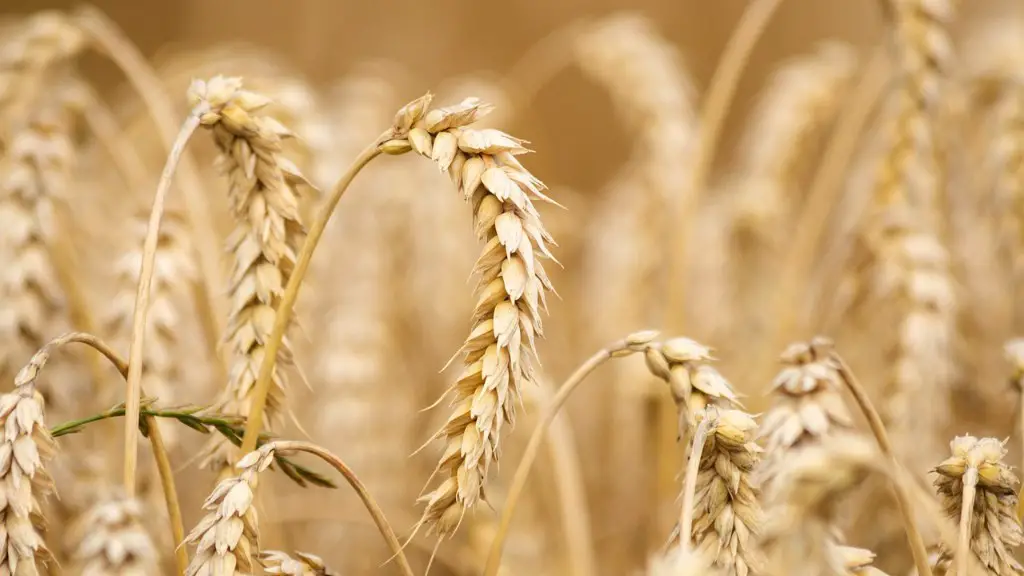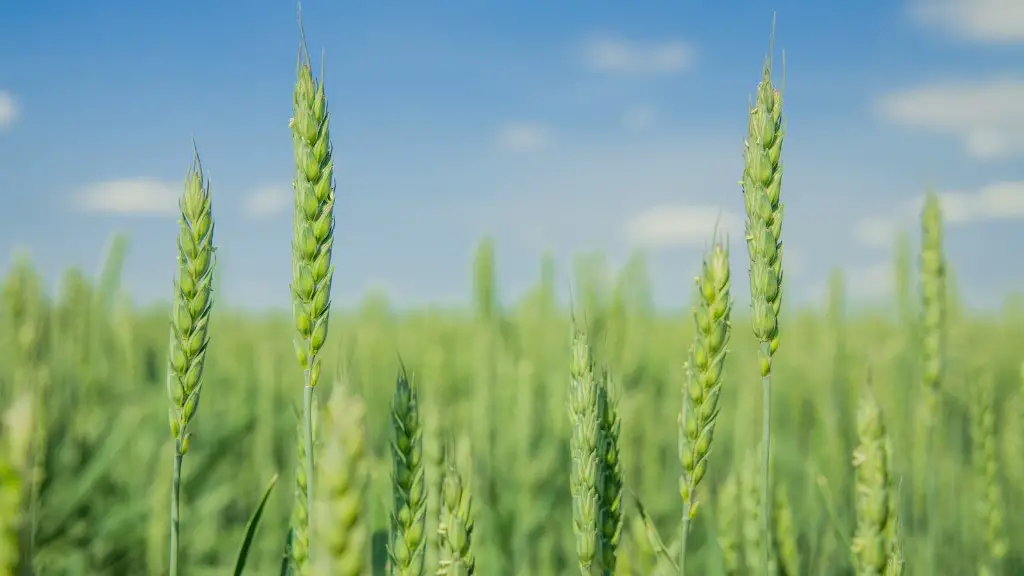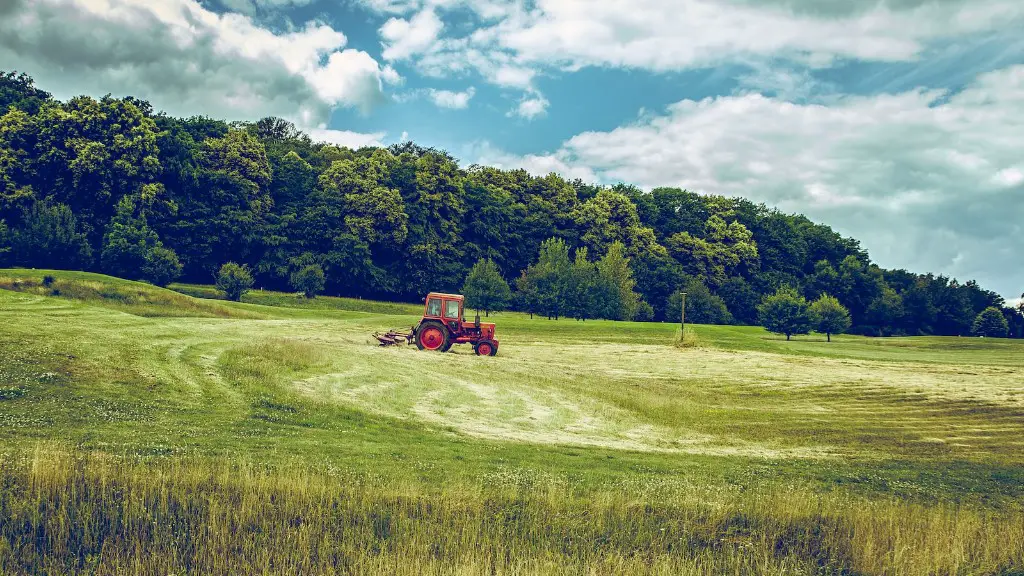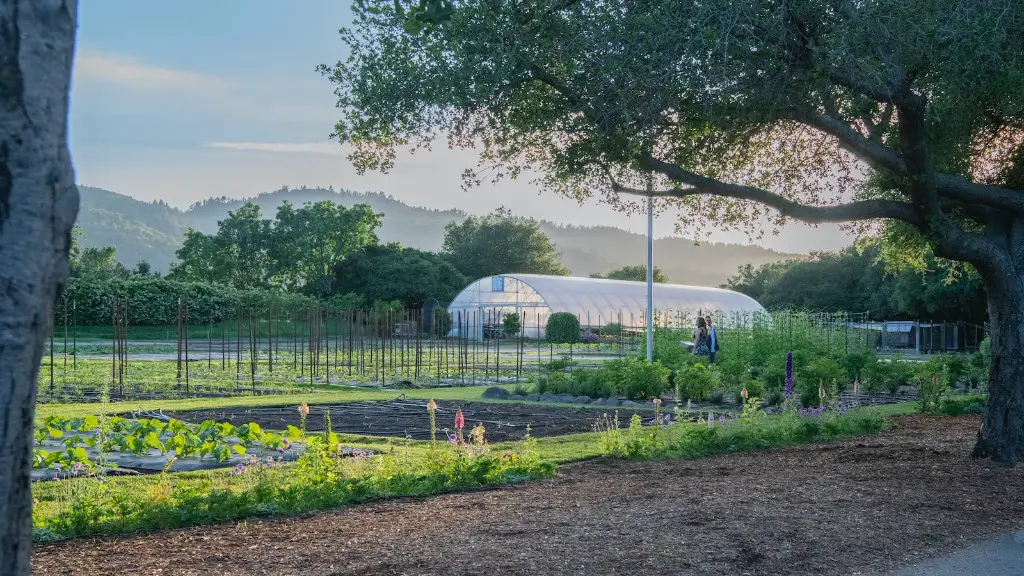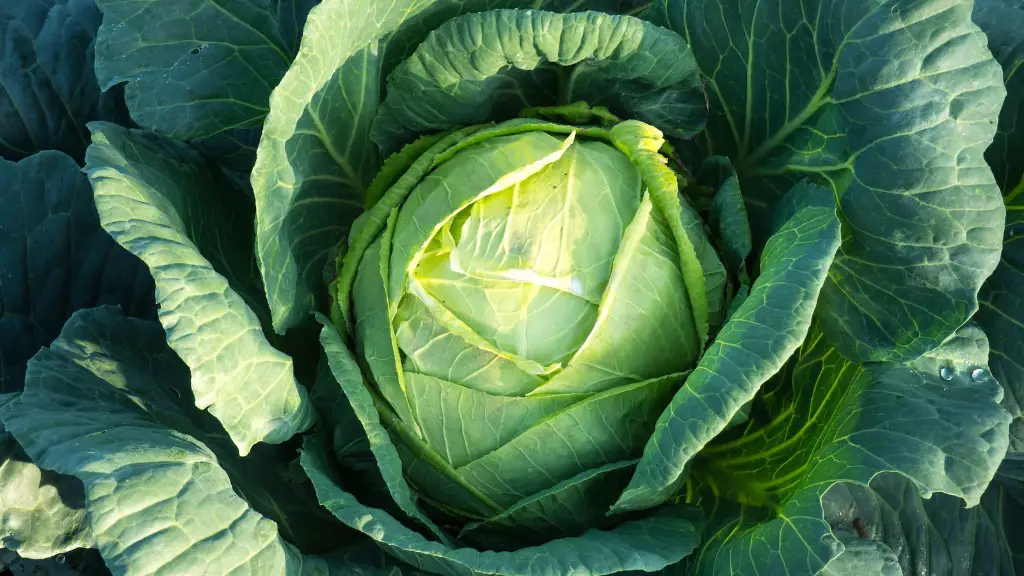Sustainability has become increasingly important in today's world. It is critical to consider sustainable agriculture when deciding what to produce and consume. Sustainable agriculture helps to protect our planet and its vital resources while also providing healthy food to those who need it. There are many considerations to think about when considering sustainable agriculture. These include how food is grown, processed and transported, its impact on the environment, and how it will affect future generations.
In terms of growing food, sustainable agriculture addresses the way we use resources. This includes soil, water, and energy. We must be mindful of the type of land used to grow food and if its productivity can be maintained over time. Additionally, a key consideration of sustainable agriculture is the sources of water used for food production and the impacts of water management in food production. Furthermore, understanding and utilising the energy needed to power agricultural productivity is critical in an increasingly climate-conscious world.
In addition to the methods of growing food, sustainable agriculture encompasses the treatment of both people and animals. This includes the fair and humane treatment of those working in the agricultural industry, such as farmworkers and livestock. It also includes ensuring that appropriate safety and health regulations are in place. Additionally, sustainable agriculture encourages farmers to use farming practices that protect biodiversity.
The next consideration of sustainable agriculture is its impact on the environment. This includes the use of chemicals and fertilisers, the way in which land is used, waste and water management, as well as air quality. It also includes understanding how the use of synthetic fertilisers, pesticides and herbicides can disrupt natural ecosystems. In terms of waste management and water usage, sustainable agriculture focuses on minimising the amount of waste and water used, as well as ensuring that the appropriate water and energy is used for ensuring food security.
Finally, sustainable agriculture looks at how our food production choices today affect future generations. This includes learning from past agricultural practices and proposing more future-proof approaches to food production, such as crop diversification and water reuse. Additionally, sustainable agriculture encourages us to consider the availability of resources now and into the future and to use them wisely.
Impact on People and Animals
People and animals must be at the forefront of any discussion around sustainable agriculture. It is essential to ensure that all individuals working in the agricultural industry are treated fairly, with respect and in a humane manner. This includes employee rights, access to appropriate healthcare and education, and enforcing laws and regulations to ensure the safety and well-being of those involved in agricultural practices. In terms of livestock, sustainable agriculture requires stringent management of animal rights, welfare and housing, including ensuring food and water availability and appropriate veterinary care.
The use of chemicals, fertilisers and other inputs also has a direct impact on people and animals. The use of these inputs in food production can cause contamination into drinking, bathing, and irrigation water sources. This can have serious implications on the health and wellbeing of those living nearby, as well as the animals. Furthermore, long-term exposure to low doses of toxic chemicals can produce allergies, infertility and even cancer. Therefore, alternative farming practices should be used in order to reduce the risks and consequences on people, animals and the environment.
Lastly, it is important to consider how the use of genetic modification or gene-editing techniques (eg, GM crops) affects people and animals. GM crops are developed with the objective of introducing desirable characteristics into the plant, such as pest resistance or improved shelf life. While this technology has produced some positive outcomes, it is important to ensure that it is used responsibly, with a focus on environmental and social considerations, such as animal welfare.
Land and Biomass Use
Another critical consideration of sustainable agriculture is the use land and biomass. The continued depletion of arable land and soil fertility is a major threat to agriculture, food security, and the environment. This is why it is important to use biomass and land responsibly, with a focus on maintaining soil health and preserving natural ecosystems. This includes reducing soil erosion and maintaining soil biodiversity.
The incorporation of biomass into soil increases carbon in the soil, thus improving water-holding capacity, increasing nutrient availability and improving soil health. Additionally, sustainable agriculture requires the protection and restoration of soil, with strategies such as reduction of grazing distribution and reintroduction of cover crops. Furthermore, the incorporation of revitalised landscapes, such as agroforestry and using biodiverse crops, helps to promote faster growth and higher yields.
Harvesting biomass from sustainably managed forests also helps to ensure that land is utilised responsibly. This includes understanding the impacts of forestry and reducing its intensity, as well as ensuring that the needs of local communities are met. Additionally, this biomass use helps to restore biodiversity, improves soil health and fertility, creates a healthy environment, and helps to reduce climate change.
This in turn helps to create more sustainable food production systems. Sustainable forestry helps to reduce demand on cultivated land and assure that there is more land available to grow food. It also puts less pressure on water-related resources, which is essential for agricultural resilience. In order to guarantee a secure and healthy food system, it is essential to incorporate sustainable forestry practices into a comprehensive sustainable agriculture system.
Technology and Innovation
Technology and innovation are important considerations of sustainable agriculture. New methods for crop production, such as precision agriculture, hydroponics and aeroponics, are helping to reduce water and energy usage, and can provide higher yields with fewer inputs. Additionally, innovations in agricultural research, such as genomics and biotechnology, are helping to improve crop yield and quality, which is essential in promoting long-term sustainability.
Information and communication technologies, such as the Internet of Things and big data, also have a huge potential for improving sustainability. These technologies can increase the efficiency of food production and help smallholder farmers to better manage their resources. Additionally, they can help to reduce waste, increase yields, and improve the quality of our food.
Innovation in renewable energy is also playing an important role in sustainable agriculture. Solar energy is increasingly being used to power agricultural activities, such as electricity, pumps, and lighting. This helps to reduce our reliance on fossil fuels and increases the efficiency of food production on a global scale. Furthermore, hydrogen fuel cells, biochar, microbiomes and microalgae are being explored as innovative solutions to reduce environmental impacts associated with agriculture, while also providing more efficient sources of energy.
Innovative transport and distribution systems are also necessary considerations for sustainable agriculture. Better transport and storage facilities help to reduce food waste and increase food accessibility for those in need. Additionally, refrigeration and other new technologies can help to extend the shelf life of food, reduce the amount of packaging needed, and make transporting food more efficient. This helps to reduce food waste and increase the sustainability of our food supply.
The Role of Consumers
The role of consumers must also be considered in the push for sustainable agriculture. While producers must take the lead in implementing sustainable practices, consumers have the power to support farmers and businesses by making more mindful purchasing decisions. This includes buying more locally produced and organic products, eating more plant-based foods, and avoiding food waste.
Consumers can also support sustainable agriculture by reducing single-use plastics, choosing products with minimal packaging, and recycling appropriately. Furthermore, consumers can seek out brands that are committed to sustainable agriculture, decrease their meat consumption, and even start their own gardens. This support and commitment from consumers is essential in creating long-term, equitable and sustainable agricultural systems.
Additionally, supporting food sovereignty is an important part of consumer engagement in sustainable agriculture. This includes supporting small-scale and family farmers, as well as indigenous communities, and respecting their right to manage their own production and farm in a culturally respectful way. Supporting food sovereignty brings more choice and access to locally produced food, and strengthens small-scale and local communities.
Finally, a crucial part of consumer engagement in sustainable agriculture is staying informed. This includes learning about food systems and their environmental, social and political implications. It also includes understanding the environmental and humanitarian impacts of our food production choices, as well as advocating and campaigning for more sustainable agricultural practices.

